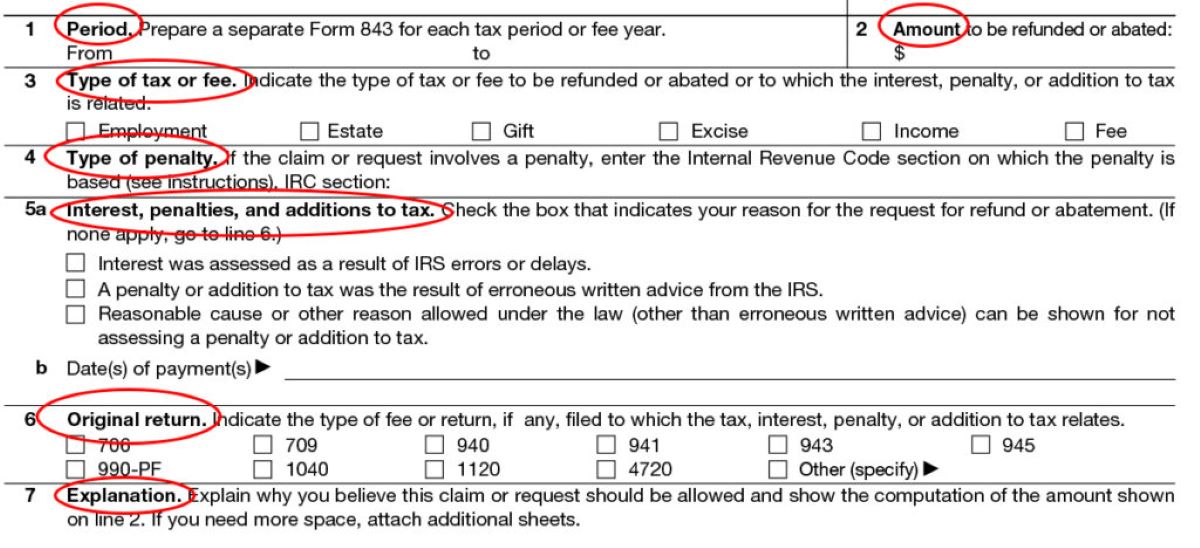

Finance
How To Become A Certified Credit Consultant
Published: January 11, 2024
Learn how to become a certified credit consultant and unlock opportunities in the finance industry. Enhance your knowledge and skillset to help people manage their credit effectively.
(Many of the links in this article redirect to a specific reviewed product. Your purchase of these products through affiliate links helps to generate commission for LiveWell, at no extra cost. Learn more)
Table of Contents
- Introduction
- What is a Certified Credit Consultant?
- Why Become a Certified Credit Consultant?
- Steps to Become a Certified Credit Consultant
- Step 1: Understand the Role of a Credit Consultant
- Step 2: Acquire Knowledge and Education in Credit Consulting
- Step 3: Choose a Credit Consulting Certification Program
- Step 4: Complete the Certification Program Requirements
- Step 5: Pass the Certification Exam
- Step 6: Obtain Practical Experience in Credit Consulting
- Step 7: Maintain Continuing Education and Certification Renewal
- Benefits of Becoming a Certified Credit Consultant
- Conclusion
Introduction
In today’s modern society, credit plays a significant role in our financial lives. Whether you’re applying for a mortgage, car loan, or even a credit card, having good credit is essential. However, not everyone understands the complexities of credit or knows how to navigate the intricacies of the credit industry. This is where certified credit consultants come in.
A certified credit consultant is a professional who provides expert guidance and assistance to individuals and businesses seeking to improve their credit scores and overall financial health. They possess in-depth knowledge of credit laws, credit reporting practices, and strategies to overcome credit challenges. By partnering with a certified credit consultant, individuals can gain valuable insights and personalized advice, empowering them to make informed decisions that can positively impact their creditworthiness.
In recent years, the demand for certified credit consultants has soared as more people realize the importance of credit and the financial opportunities it can unlock. Whether you’re looking to start your own credit consulting business or seeking employment in the financial sector, becoming a certified credit consultant can open doors to a rewarding and lucrative career.
This article aims to guide you through the steps required to become a certified credit consultant. We will explore the necessary education, certification programs, practical experience, and ongoing professional development needed to excel in this field. Additionally, we will discuss the benefits of becoming a certified credit consultant and how it can contribute to personal and financial growth.
What is a Certified Credit Consultant?
A certified credit consultant is a financial professional who specializes in assisting individuals and businesses in improving their credit profiles. These consultants have undergone rigorous training and obtained certifications to demonstrate their expertise in credit analysis, credit repair techniques, and credit management strategies.
The primary role of a certified credit consultant is to guide clients through the complex world of credit and help them overcome financial obstacles. They work closely with clients to understand their specific credit needs and develop personalized plans to address issues such as low credit scores, excessive debt, or negative credit history. By analyzing credit reports, identifying errors or inaccuracies, and implementing effective credit repair strategies, certified credit consultants can help clients rebuild their creditworthiness.
Aside from credit repair, certified credit consultants also offer valuable financial advice and education. They educate clients on credit management best practices, budgeting, debt management, and other essential financial skills. Through their expertise, these consultants empower clients to take control of their finances, make informed decisions, and establish a solid foundation for long-term financial success.
One of the distinguishing features of a certified credit consultant is their commitment to ethical and legal credit practices. They adhere to industry regulations, such as the Fair Credit Reporting Act (FCRA) and the Credit Repair Organizations Act (CROA), to ensure that their services are compliant and transparent.
Ultimately, a certified credit consultant’s goal is to empower individuals and businesses to achieve their financial goals by improving their creditworthiness. Whether it’s helping clients qualify for a loan, obtain favorable interest rates, or simply gain peace of mind knowing their credit is in good standing, certified credit consultants play a vital role in the financial well-being of their clients.
Why Become a Certified Credit Consultant?
Embarking on a career as a certified credit consultant can offer numerous benefits and opportunities. Here are some compelling reasons why you might consider becoming a certified credit consultant:
- Make a positive impact: As a certified credit consultant, you have the opportunity to make a real difference in people’s lives. By helping clients improve their credit scores and financial well-being, you can empower them to achieve their goals, whether it’s buying a home, starting a business, or securing a better interest rate.
- Flexibility and freedom: Becoming a certified credit consultant often offers flexible work arrangements. You can choose to work as an independent consultant, offering your services on your schedule, or join an established credit consulting firm. This flexibility allows you to create a work-life balance that suits your needs and lifestyle.
- High demand for credit expertise: With the increasing importance of credit in today’s society, the demand for knowledgeable credit consultants is constantly growing. Credit impacts many aspects of our lives, from employment opportunities to securing financing. By becoming certified, you position yourself to meet this demand and capitalize on a highly sought-after skill set.
- Potential for a lucrative career: Certified credit consultants can earn a substantial income, especially as they gain experience and build a solid reputation. Additionally, offering specialized services, such as credit repair for businesses or mortgage brokers, can open doors to higher earning potential.
- Constant learning and professional growth: The credit industry is dynamic and ever-evolving. As a certified credit consultant, you’ll have the opportunity to continuously expand your knowledge and stay up-to-date on industry trends and regulations. This ongoing learning ensures that you remain at the forefront of credit consulting best practices.
- Satisfaction in helping others: Guiding individuals and businesses on their path to financial success can be immensely rewarding. Witnessing the positive transformations in your clients’ lives and knowing that you played a part in their journey can provide a deep sense of satisfaction and fulfillment.
Overall, becoming a certified credit consultant offers the perfect blend of financial opportunities, personal fulfillment, and the chance to positively impact the lives of others. If you have a passion for finance, helping others, and a desire to work in a growing industry, this career path may be the ideal fit for you.
Steps to Become a Certified Credit Consultant
Becoming a certified credit consultant requires a combination of education, training, certification, and practical experience. Here are the essential steps to embark on this rewarding career path:
- Understand the Role of a Credit Consultant: Familiarize yourself with the responsibilities and duties of a credit consultant. Gain insight into the industry’s regulations, ethical standards, and best practices to ensure you can meet clients’ needs effectively.
- Acquire Knowledge and Education in Credit Consulting: Develop a solid understanding of credit concepts, credit scoring models, credit laws, and the credit reporting system. Consider enrolling in courses or programs related to credit counseling, credit repair, and financial management.
- Choose a Credit Consulting Certification Program: Research reputable credit consulting certification programs that align with your career goals. Look for programs that cover comprehensive credit topics and teach practical skills necessary for success in the field.
- Complete the Certification Program Requirements: Enroll in the chosen certification program and fulfill all the requirements, which may include coursework, workshops, exams, and assessments. Be prepared to dedicate time and effort to acquire the necessary knowledge and skills.
- Pass the Certification Exam: Successfully pass the certification exam to demonstrate your understanding of credit consulting principles, practices, and regulations. The exam assesses your knowledge and ensures that you are ready to provide expert guidance to clients.
- Obtain Practical Experience in Credit Consulting: Gain practical experience by working with clients under the supervision of a seasoned credit consultant or by joining an established credit consulting firm. This hands-on experience will further strengthen your skills and understanding of real-world credit scenarios.
- Maintain Continuing Education and Certification Renewal: Stay updated on industry changes, new regulations, and emerging credit trends by engaging in continuous education. Attend seminars, workshops, and conferences to expand your knowledge and maintain your certification status.
By following these steps, you can establish yourself as a qualified and trusted certified credit consultant. It is important to remember that the journey to becoming a certified credit consultant requires dedication, ongoing learning, and a commitment to ethical practice.
Take the time to research and select the best certification program that meets your career goals and offers comprehensive training. With the right education, certification, and practical experience, you can build a successful career as a certified credit consultant and make a meaningful impact on people’s financial lives.
Step 1: Understand the Role of a Credit Consultant
Before embarking on the journey to becoming a certified credit consultant, it is vital to have a clear understanding of the role and responsibilities associated with this profession. A credit consultant is an individual who provides expert guidance and assistance to clients seeking to improve their credit scores and overall financial health.
As a credit consultant, your primary objective is to help clients navigate the complexities of the credit system and overcome financial challenges. This involves analyzing credit reports, identifying errors or inaccuracies, and developing personalized strategies to address them. By imparting your knowledge and expertise, you empower individuals and businesses to make informed decisions and take control of their financial future.
To excel in this role, credit consultants need to stay updated on credit laws, regulations, and industry best practices. This includes being knowledgeable about the Fair Credit Reporting Act (FCRA), the Credit Repair Organizations Act (CROA), and other relevant legislation. By adhering to ethical practices and ensuring compliance, credit consultants foster trust with their clients and maintain the integrity of their services.
Effective communication and interpersonal skills are essential in interacting with clients. As a credit consultant, you will need to explain complex credit concepts, strategies, and recommendations in a clear and understandable manner. You should possess strong analytical skills to assess clients’ credit profiles and develop tailored action plans based on their unique circumstances.
It is crucial to manage client expectations and provide realistic timelines for credit improvement. While credit repair is possible, it requires time and effort. Credit consultants must educate clients about the necessary steps they need to take and the patience required throughout the process.
Understanding the role of a credit consultant also means recognizing the importance of ongoing professional development. The credit industry is constantly evolving, with new laws and regulations being introduced. To stay at the forefront of this field, credit consultants must commit to continuous learning, attending seminars, workshops, and industry conferences.
By starting with a solid understanding of the role and responsibilities of a credit consultant, you lay the foundation for success in this career path. It enables you to set clear goals and expectations for your professional development as you progress through the certification process and gain practical experience.
Step 2: Acquire Knowledge and Education in Credit Consulting
To become a successful credit consultant, it is crucial to acquire the necessary knowledge and education in credit consulting. This step involves developing a strong understanding of credit concepts, credit scoring models, credit laws, and the credit reporting system.
There are several avenues you can pursue to acquire the knowledge needed for credit consulting:
- Self-Study: Start by exploring authoritative resources such as books, articles, and online publications that delve into credit-related topics. This will help you establish a solid foundation of credit knowledge.
- Online Courses and Webinars: Many reputable organizations and educational platforms offer online courses and webinars specifically designed for credit consulting. These courses cover a wide range of topics, including credit scoring, credit repair techniques, credit laws, and compliance. Consider enrolling in these courses to gain comprehensive expertise.
- Credit Counseling Programs: Look for credit counseling programs offered by accredited institutions or nonprofit organizations. These programs provide insights into credit management, budgeting, debt consolidation, and other essential financial skills. Understanding these areas will enhance your ability to guide clients effectively.
- Professional Associations: Joining professional associations, such as the National Association of Credit Services Organizations (NACSO) and the Association for Financial Counseling and Planning Education (AFCPE), can provide access to educational resources, professional development opportunities, and networking events.
- Mentorship and Apprenticeship: Seek mentorship or apprenticeship opportunities with experienced credit consultants or credit counseling agencies. This hands-on experience allows you to learn from seasoned professionals and gain practical insights into the credit consulting industry.
By actively engaging in these educational avenues, you will acquire the knowledge necessary to provide expert credit consulting services. It is important to stay abreast of changes and updates in credit laws, regulations, and industry best practices. This ongoing commitment to learning will ensure that you can offer informed advice and strategic solutions to your clients.
Aside from formal education, developing skills in communication, problem-solving, and critical thinking is essential for a successful career in credit consulting. These skills will allow you to effectively understand and address your clients’ needs, work through complex credit challenges, and provide clear and actionable recommendations.
Remember to continuously seek opportunities for professional development. As you gain knowledge and education in credit consulting, you will be prepared for the next step in becoming a certified credit consultant.
Step 3: Choose a Credit Consulting Certification Program
Once you have acquired the necessary knowledge and education in credit consulting, the next step is to choose a reputable credit consulting certification program. A certification program provides formal recognition of your expertise and can enhance your credibility as a credit consultant.
When selecting a credit consulting certification program, consider the following factors:
- Accreditation and Recognition: Ensure that the certification program is accredited by a recognized accrediting body. Look for programs that are recognized and respected within the credit consulting industry. This accreditation ensures that the program meets high standards of quality and relevance.
- Curriculum and Course Content: Review the curriculum and course content offered in the certification program. Ideally, it should cover a wide range of credit consulting topics, including credit laws, credit scoring models, credit repair techniques, and compliance. The more comprehensive the program, the better equipped you will be to handle a variety of client situations.
- Instructors and Expertise: Research the qualifications and expertise of the instructors involved in the certification program. The instructors should have extensive experience in credit consulting and possess up-to-date knowledge of the industry. Learning from seasoned professionals will enhance the value of your certification.
- Online or In-Person Format: Consider whether the certification program is offered in an online or in-person format. Evaluate which format aligns with your learning style, schedule, and preferences. In-person programs may provide the opportunity for more interactive learning, while online programs offer flexibility and convenience.
- Cost and Duration: Understand the cost and duration of the certification program. Compare the fees with the value offered by the program, considering the curriculum, course materials, and support provided. Additionally, evaluate the program’s length and ensure it fits within your timeframe and availability.
By thoroughly researching and comparing different certification programs, you can choose the one that best suits your needs and goals. Remember that certification is an investment in your professional development and can significantly enhance your career prospects as a credit consultant.
Keep in mind that it is also beneficial to seek certifications that are widely recognized and respected within the credit consulting industry. Look for certifications from well-established organizations that have a solid reputation and are recognized by employers and clients alike.
Ultimately, choosing the right credit consulting certification program sets the foundation for your journey to becoming a certified credit consultant. It equips you with the necessary skills, knowledge, and industry recognition to provide top-notch credit consulting services to clients.
Step 4: Complete the Certification Program Requirements
After selecting a credit consulting certification program, the next step is to enroll in the program and complete all the requirements. Each certification program will have specific requirements that you must fulfill to earn your certification as a credit consultant.
The certification program requirements may include:
- Coursework: Complete the required coursework or training modules specified by the certification program. The coursework will cover essential topics such as credit laws, credit reporting practices, credit repair techniques, and ethical standards in credit consulting.
- Exams and Assessments: Successfully pass exams and assessments, both during the program and at the end, to evaluate your understanding of the course material. These assessments ensure that you have retained the necessary knowledge to provide effective credit consulting services.
- Practical Assignments: Some certification programs may include practical assignments or case studies to apply your knowledge and demonstrate your ability to analyze credit reports, identify credit issues, and develop personalized solutions for clients.
- Workshops and Seminars: Participate in workshops and seminars offered as part of the certification program. These events provide additional opportunities for learning, networking with industry professionals, and gaining practical insights into credit consulting practices.
- Supervised Experience: Some certification programs may require a certain number of hours of supervised experience working with clients or shadowing experienced credit consultants. This hands-on experience allows you to apply your knowledge in real-world situations and further develop your skills.
It is important to carefully review the program requirements and create a plan to ensure that you fulfill all the necessary components. Understand the timeline for completing each requirement and allocate sufficient time and effort to meet the program’s expectations.
Throughout the certification program, take advantage of available resources, such as study guides, supplementary materials, and online forums, to enhance your learning experience. Engage with instructors and fellow participants to deepen your understanding of credit consulting concepts and gain different perspectives on credit-related scenarios.
Completing the certification program requirements demonstrates your commitment to professional growth and ensures that you have obtained the necessary knowledge and skills to provide expert credit consulting services to clients. It is a significant milestone on your journey to becoming a certified credit consultant.
Once you have successfully completed all the program requirements, you will be ready to move on to the next step: passing the certification exam.
Step 5: Pass the Certification Exam
After completing the requirements of the credit consulting certification program, the next step is to pass the certification exam. The exam is designed to assess your knowledge and comprehension of credit consulting principles, practices, and regulations.
Passing the certification exam demonstrates your proficiency in credit consulting and is a crucial step towards becoming a certified credit consultant. Here are some key factors to consider when preparing for the exam:
- Review Course Materials: Go through your course materials, notes, and any additional resources provided during the certification program. Refresh your understanding of credit laws, credit reporting practices, credit repair techniques, and ethical standards. Pay close attention to any areas where you may need further review or clarification.
- Practice with Sample Questions: Seek out sample questions or practice exams that simulate the format and content of the certification exam. Solve these questions to familiarize yourself with the types of questions that may be asked and to assess your readiness for the exam.
- Create a Study Plan: Develop a study plan that includes structured study sessions leading up to the exam. Break down the topics into manageable sections and allocate adequate time for review and practice. Consistency and discipline in your study routine will contribute to your success in the exam.
- Join Study Groups or Discussion Forums: Engage with other participants of the certification program or credit consulting professionals through study groups or online discussion forums. Collaborating with others can provide different perspectives, clarify doubts, and reinforce your understanding of the material.
- Simulate Exam Conditions: Prior to the actual exam, simulate exam conditions as closely as possible. Allocate a specific time frame to complete a sample exam or a set of practice questions. This will help you familiarize yourself with the time constraints and build your confidence in answering exam-level questions efficiently.
- Stay Confident and Manage Stress: Remember to stay confident in your abilities and manage exam-related stress. Take breaks, get enough rest, and practice relaxation techniques to maintain a clear and focused mindset. Believing in yourself and your preparation will boost your performance during the exam.
Approach the certification exam with a positive mindset, knowing that you have put in the effort and preparation necessary to succeed. Trust in your knowledge and problem-solving skills developed throughout your credit consulting education and certification program.
Passing the certification exam is a significant achievement and brings you one step closer to becoming a certified credit consultant. Once you have successfully passed the exam, you can move on to the next step: obtaining practical experience in credit consulting.
Step 6: Obtain Practical Experience in Credit Consulting
Obtaining practical experience is a crucial step in your journey to becoming a successful credit consultant. Practical experience allows you to apply your knowledge and skills in real-world scenarios, further hone your expertise, and build a solid foundation for your credit consulting career.
Here are some ways to gain practical experience in credit consulting:
- Internships or Apprenticeships: Seek internships or apprenticeship opportunities with credit consulting firms or organizations. These positions provide hands-on experience working with clients, analyzing credit reports, and developing personalized credit improvement plans. Under the guidance of experienced consultants, you can learn best practices, observe effective client interactions, and refine your consulting skills.
- Shadowing Experienced Credit Consultants: Reach out to established credit consultants and ask if you can shadow them in their work. By observing their day-to-day activities, client meetings, and credit analysis processes, you can gain valuable insights into the practical aspects of credit consulting. This observational experience can be highly beneficial in understanding client expectations and refining your consulting approach.
- Credit Counseling Agencies: Consider joining credit counseling agencies that offer credit consulting services to clients. These agencies often have established processes and mentorship programs to support new consultants. Working with diverse clients, such as those seeking credit repair or debt management services, will expose you to different credit scenarios and enable you to further develop your expertise.
- Volunteer Work: Offer your credit consulting services as a volunteer to individuals or organizations in need. Look for local community initiatives, non-profit organizations, or small businesses that may benefit from credit counseling. By volunteering your expertise, you can gain practical experience while making a positive impact on the community.
- Continuing Education: Engage in continuous learning opportunities to stay updated on the latest credit trends, laws, and industry developments. Attend workshops, seminars, and conferences related to credit consulting. These events facilitate networking with industry professionals and expose you to different perspectives and strategies in the field.
Remember to document your practical experience in credit consulting. Keep a record of the clients you have worked with, the challenges you have addressed, and the strategies you have implemented. These examples will be valuable when showcasing your expertise to potential clients or employers in the future.
Practical experience in credit consulting not only builds your confidence and expertise, but it also enhances your problem-solving, communication, and client management skills. Actively seek opportunities to apply your knowledge and learn from seasoned professionals in the field, as this will set you apart as a competent and trusted credit consultant.
Upon completing this step, you will have gained valuable practical experience that will serve as a solid foundation for your career as a certified credit consultant.
Step 7: Maintain Continuing Education and Certification Renewal
Maintaining continuing education and certification renewal is a critical step for ongoing professional growth and staying current in the ever-evolving field of credit consulting. As a certified credit consultant, it is essential to remain up-to-date on industry trends, new regulations, and emerging best practices.
Here’s how you can ensure that you maintain your knowledge and certification:
- Continuing Education: Participate in ongoing educational opportunities related to credit consulting. Attend workshops, webinars, and conferences to expand your knowledge and deepen your expertise. Stay informed about changes in credit laws, regulations, and industry standards. Continuing education demonstrates your commitment to staying current and enhances your credibility as a credit consultant.
- Certification Renewal: Follow the specific guidelines and requirements for certification renewal as set forth by the certifying body. Many certifications require you to earn a specific number of Continuing Education Units (CEUs) over a specified period. CEUs can be obtained through relevant courses, seminars, webinars, or other approved educational activities. Ensure that you complete the necessary requirements and submit the required documentation to renew your certification in a timely manner.
- Industry Networking: Connect with other credit consultants, join professional associations, and engage in industry networking events. Networking enables you to exchange knowledge, share experiences, and stay informed about the latest developments in the credit consulting field. Building professional relationships can also lead to mentorship opportunities and collaborations.
- Stay Informed: Regularly read industry publications, journals, and news sources to stay informed about current trends and issues in credit consulting. Subscribe to newsletters or blogs from credit industry experts to receive updates and insights. Engage in online forums or social media groups to participate in discussions and learn from peers in the field.
- Professional Development: Continuously develop your skills to expand your service offerings as a credit consultant. Stay attuned to emerging credit technologies and tools that can enhance your efficiency and effectiveness in helping clients. Seek out additional certifications or specialized training in areas such as credit scoring models, mortgage lending, or business credit consulting to broaden your expertise and marketability.
By maintaining your continuing education and certification renewal, you not only stay current in your knowledge but also demonstrate your commitment to maintaining a high level of professionalism and excellence in credit consulting. Employers and clients seek credit consultants who continuously strive to improve and provide the best possible guidance and solutions.
As you progress in your career as a credit consultant, remember that ongoing learning and development are key to meeting the evolving needs of clients and staying ahead in the competitive credit consulting industry.
With the completion of this step, you have successfully laid the foundation for maintaining your expertise and ensuring the continued success of your career as a certified credit consultant.
Benefits of Becoming a Certified Credit Consultant
Becoming a certified credit consultant offers a multitude of benefits that can contribute to both personal and professional growth. Here are some key advantages of pursuing a career in credit consulting:
- Opportunity to Make a Difference: As a certified credit consultant, you have the opportunity to positively impact the lives of individuals and businesses. By helping clients improve their credit scores and financial well-being, you empower them to achieve their goals, whether it’s buying a home, starting a business, or securing better interest rates.
- High Demand for Credit Expertise: In today’s credit-dependent society, the demand for credit expertise continues to grow. Obtaining certification in credit consulting positions you as a trusted professional in a field where your skills and knowledge are highly sought after. Whether you choose to work independently or with established financial institutions, your expertise will be in demand.
- Career Opportunities: Being a certified credit consultant opens up a wide range of career opportunities. You can work independently, starting your own credit consulting business and serving individual clients or businesses. Alternatively, you can seek employment with banks, credit unions, mortgage brokers, or financial counseling organizations that offer credit consulting services.
- Financial Rewards: Building a successful career as a credit consultant can be financially rewarding. As you gain experience and establish a solid reputation, you can command higher fees for your services. Additionally, specializing in niche areas, such as business credit consulting or mortgage lending, can lead to greater earning potential.
- Flexibility and Independence: One appealing aspect of a career in credit consulting is the flexibility and independence it offers. You can work remotely, set your own hours, and choose the clients you want to work with. This level of autonomy allows for a better work-life balance and the ability to tailor your career to your personal preferences and needs.
- Continuous Learning and Growth: The credit industry is dynamic and ever-evolving, with new laws, regulations, and technologies emerging regularly. As a certified credit consultant, you commit to ongoing learning and professional growth. This ensures that you stay up-to-date with industry trends, maintain your expertise, and provide the best possible service to your clients.
- Personal Satisfaction: Helping clients achieve their financial goals and overcome credit challenges can be immensely satisfying. Witnessing the positive impact of your guidance and expertise on their lives brings a sense of fulfillment and purpose to your work. Knowing that you have made a difference in improving someone’s creditworthiness and overall financial well-being can be highly rewarding.
Becoming a certified credit consultant offers a wide range of benefits, including the opportunity to make a positive impact, high demand for expertise, various career options, financial rewards, flexibility, continuous learning, and personal satisfaction. By pursuing this career path, you can build a fulfilling and successful career while helping others navigate the complexities of credit and achieve their financial goals.
Conclusion
Becoming a certified credit consultant is a rewarding career path that offers numerous benefits and opportunities. It is a field that allows you to make a positive impact on individuals and businesses by helping them navigate the complex world of credit. By becoming a certified credit consultant, you gain the expertise to guide clients towards improving their credit scores, managing debt, and making informed financial decisions.
Throughout the seven steps outlined in this article, you’ve learned the importance of understanding the role of a credit consultant, acquiring knowledge and education in credit consulting, choosing a credible certification program, completing program requirements, passing the certification exam, obtaining practical experience, and maintaining continuing education and certification renewal.
As a certified credit consultant, you have the opportunity to excel in a field that is in high demand. Your expertise can open doors to various career paths, whether you choose to work independently or seek employment with financial institutions. The financial rewards and flexibility of this career provide a level of autonomy and personal satisfaction that few professions can match.
Remember that your journey as a certified credit consultant does not end with achieving certification. The credit industry is ever-evolving, and continuous education and staying informed about industry trends are fundamental to your success. By staying on top of the latest credit laws, regulations, and credit management strategies, you ensure that you can provide the most up-to-date guidance to your clients.
Embrace the opportunities of this dynamic field and commit to ongoing growth and development. By doing so, you position yourself as a knowledgeable and trusted professional in credit consulting, ready to make a real difference in the financial lives of others.
So, if you’re passionate about finance, enjoy helping people, and thrive on constant learning, consider embarking on the path to becoming a certified credit consultant. Your expertise can have a profound impact on the financial well-being and future success of your clients. Start your journey today and unlock the potential of a fulfilling and rewarding career in credit consulting.














